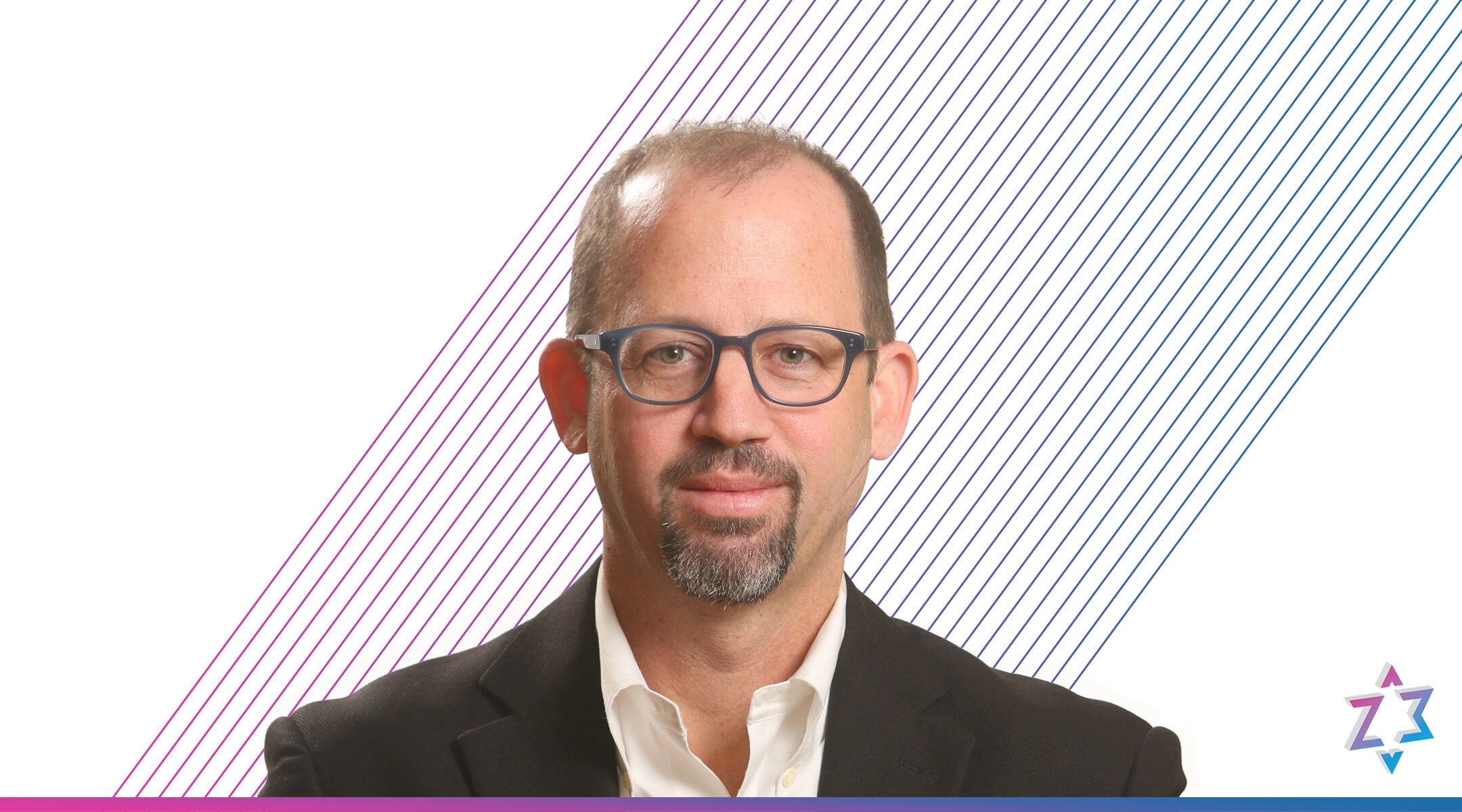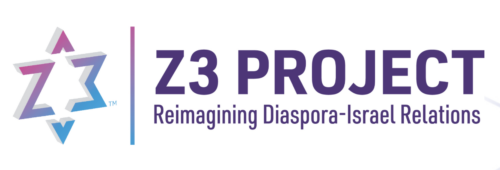Dr. Scott Lasensky is a key virtual participant in the Z3 2021 Futures Workshop, lending his deep expertise in Foreign Policy and National Security to make sense of this year’s out-of-the-box Futures Workshop format.
Dr. Lasensky teaches courses on Israel and American Jewish politics at the University of Maryland, College Park, and is a senior adviser to Enter: The Jewish Peoplehood Alliance. Lasensky served in the Obama Administration as a senior policy adviser to Ambassadors Daniel B. Shapiro, Susan E. Rice and Samantha J. Power, as well as the U.S. Mission’s principal liaison to the Jewish community. Lasensky has held a variety of positions at leading think tanks, publishing widely on a range of subjects related to U.S. foreign policy in the Middle East, and appearing frequently in Israeli and American media outlets.
This interview has been condensed and edited for clarity.
You’ve had a really interesting background in both government and academia, specifically in your role as adviser to Ambassador Dan Shapiro and your involvement with The Jewish Peoplehood Alliance. Can you tell me more about that? How is that experience relevant to the Z3 panel?
My experience in public policy grew out of moving to Washington and working in think tanks. In 2004, I was offered a position at the U.S. Institute of Peace in Washington, which is a congressionally funded organization — I like to call it a “think and do” tank. And it was through that kind of having one foot in the public sphere and one foot still in a kind of an NGO semi-independent arena where I started working more and more on Arab-Israeli peace-making issues, and issues of American involvement in the Middle East. In 2011, I joined the Obama administration; I held two roles. Both of these roles got me involved in global Jewish affairs and Jewish politics. First, I worked for the U.S. Ambassador to the UN, Susan Rice, and I was her adviser on Israel and the Middle East. So as the principal adviser on these matters, I suddenly was thrust into an arena that was very complex, sometimes hostile or negative. I was deeply involved in the effort in 2014-15 to make Yom Kippur an official United Nations holiday. And from that I took a second role and I worked in Israel, as Ambassador Shapiro’s adviser.
When I left government in 2017, I decided that I wanted to continue to work on these issues. And one of the ways that I’ve been able to do it is through a new startup that I’m delighted to be involved in called The Jewish Peoplehood Alliance. We have a very broad mandate. We’re devoted to increasing connectivity and literacy across the Jewish world and are committed to a vision of global Jewry, a united, secure, inclusive Jewish people. It was founded by Charles Bronfman and a small circle of family foundations and his long-term philanthropic partner, Dr. Jeffrey Solomon. And we were launching right around the time of March 2020. So it’s been a difficult environment to start something new, but we have some new programs. I’m personally trying to work on establishing a Jewish peoplehood coalition here in North America by binding together organizations and communities that are committed to this particular kind of Jewish peoplehood vision — one based on solidarity and both old notions of Jewish obligation, klal Yisrael, but also newer ideas of diversity and inclusivity.
If there’s a gevalt — because there’s a gevalt in almost every Jewish initiative — our gevalt is a sense of concern, one that the two pillar societies in the Jewish world today, Israel and the United States, may be moving in separate directions. And that drift is not good. Countries that are doing well, the smartest ones, Qatar, Norway…invest in their future. These days through sovereign wealth funds, they take their surpluses and they put them in the bank and plan for the future. We want to try to think that through and adapt that model to the Jewish world. So our “gevalts” are not one of Jewish insecurity, or anti-Semitism, or assimilation, but how can we maintain some of this success and invest in ways that prolong this moment?
You’re very bullish on Israel-Diaspora relations, then?
We’re worried about trends that are pulling us apart. We put a high premium on Jewish unity, and solidarity, and everybody at Enter has a deep sense that this great moment of Jewish success may not last forever… But the biggest metrics that matter most — health, wealth, safety, democracy — Jews are doing pretty well, probably the best they’ve done in a century or more.
Is game theory/war simulation a model you use in your professional life?
Having worked in the national security and foreign policy world for so long, and having been exposed to a lot of simulations and war gaming, I was very much attracted to the Z3 organizers’ request to reflect a little bit on that, and help them think through their conference agenda, because it’s very interesting. It’s not an arena — Jewish politics and world Jewish politics, Israel-Diaspora relations —where these kinds of exercises take place. So, I find it very intriguing that they’re adapting or borrowing a very common practice from another arena. And I think it’s smart.
Why should the Jewish community be interested in this exercise?
I think this kind of exercise is really more tailored to community leaders, and the people who find themselves in positions, whether it’s as the head of their local community or a Jewish institution or a national Jewish community, or they’re in an Israeli public policy position. This kind of exercise, I think, fills in some gaps. There’s a big normative gap in Israel-Diaspora affairs; there isn’t a clear set of guidelines that are supposed to determine what the values are and what the division of labor is, and who does what. It’s a wild and wide mix of actors. So given how complicated it is to address issues like that, I think gaming and running simulations helps to minimize improvisation and to plan for crisis moments that don’t have very clean or clear playbooks. It’s a proven tool in the foreign policy and national security realm.
How does a traditional model of role-playing among inter-state actors or groups, all different kinds of constituencies, translate into developing a parallel for Israel-Diaspora relations?
The preparation is what’s key, the best simulations are the ones that have the greatest investment in preparing, writing that scenario, making it realistic…It’s all about making the simulation real, and getting players who are committed to learning their roles, and mixing them up a little bit, making sure some people play roles they’re not used to in their day-to-day lives.
Again, at the end of the day, I feel it’s very important for generating some new ideas, for getting new perspectives, for stepping into the shoes of another party to try to minimize improvisation, which is typically how community leaders and Israeli leaders manage their way through crises that develop, whether it’s the “Who is a Jew” crisis in the late 80s, or the collapse of the Kotel framework in 2017, or there were years and years of disagreements during the Soviet Jewry movement about where should Jewish emigres be allowed to go and what were the right tactics. And there weren’t always clear ways to sort out these differences of opinion.
What do you hope this conference will accomplish in terms of finding new ways to handle the challenges of Israel-Diaspora relations, i.e., Jewish peoplehood?
The project is important just by asking certain questions. The majority of stakeholders in this realm, they’re not asking the hard questions. So I think just by coming together, and shining the spotlight where they’re shining it and asking hard questions about existing institutions and paradigms is hugely important. Number two, I think they’re bringing an innovative spirit that partly comes out of the West. California is underrepresented…given sort of the legacy of other centers of Jewish life. That’s often left out.
Do you think the pandemic has had an impact on Israel-Diaspora relations, and has a new model emerged from it?
Well, I don’t think a new model has emerged, but I would say it’s created a tremendous amount of damage in terms of these relationships, because we’ve been heavily invested in face-to-face contact, especially in our youth engagement programs, Birthright, teen tours… the mifgash (meeting or encounter) experience with Israelis. So Israel-Diaspora ties, I think, took a huge hit by the elimination of now almost two years of in-person encounter educational experiences.
So we need to find new ways. But we know the good news is that religious communities are meeting now sometimes in larger numbers and hybrid b’nai mitzvah ceremonies are happening and more people are included, rather than fewer. But it took a while to retool, because we were pretty much almost entirely invested in brick and mortar. So it’s still very challenging. So we’re going to have to think through other ways to engage younger diasporic populations and young Israeli populations to ensure that we’re insulated against a future shock like this.
JTA has documented Jewish history in real-time for over a century. Keep our journalism strong by joining us in supporting independent, award-winning reporting.







